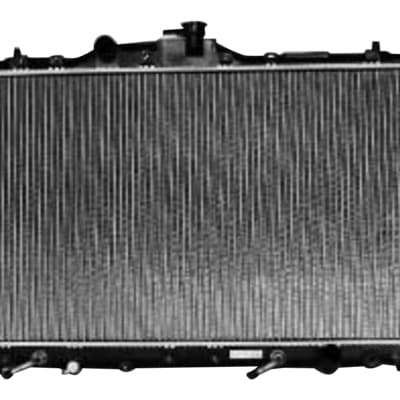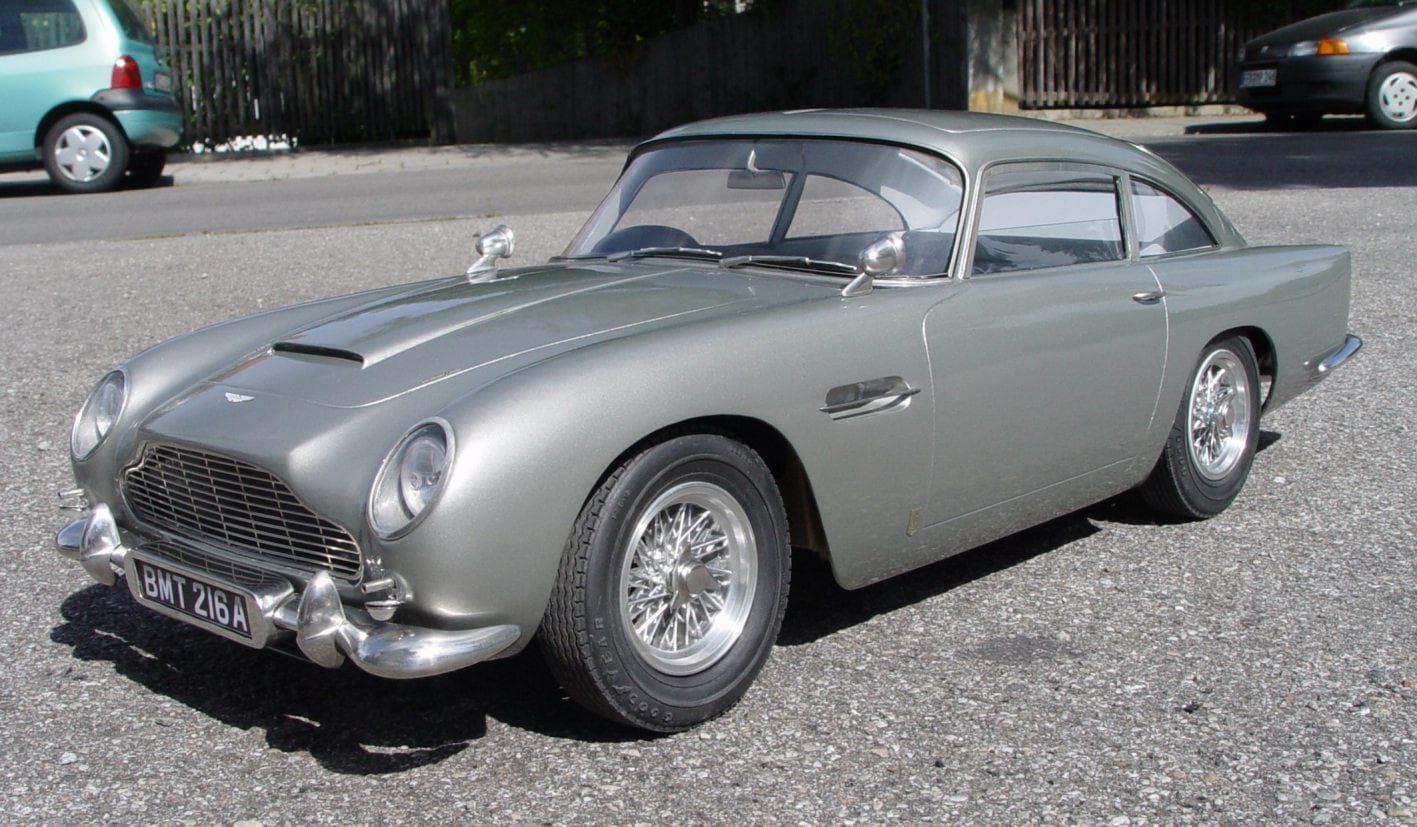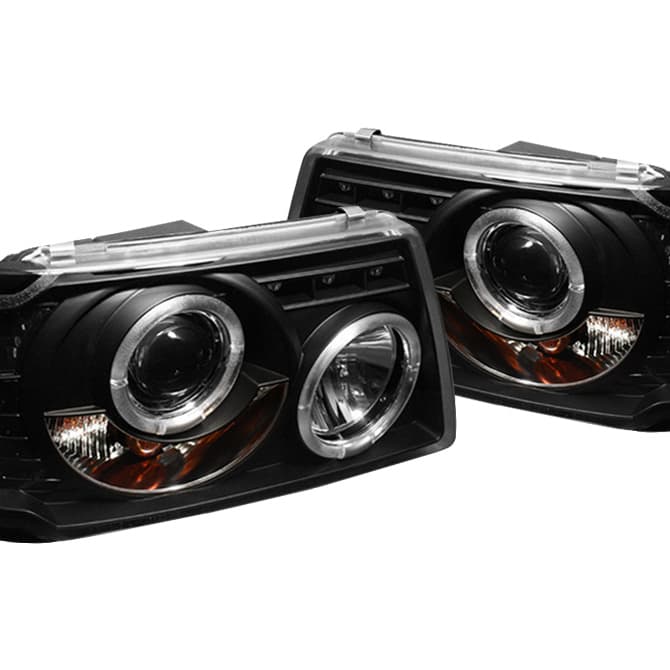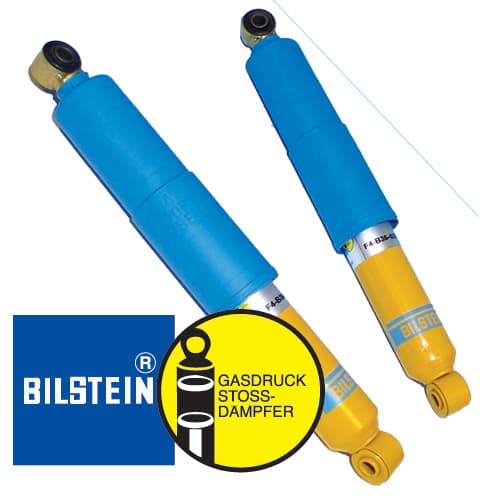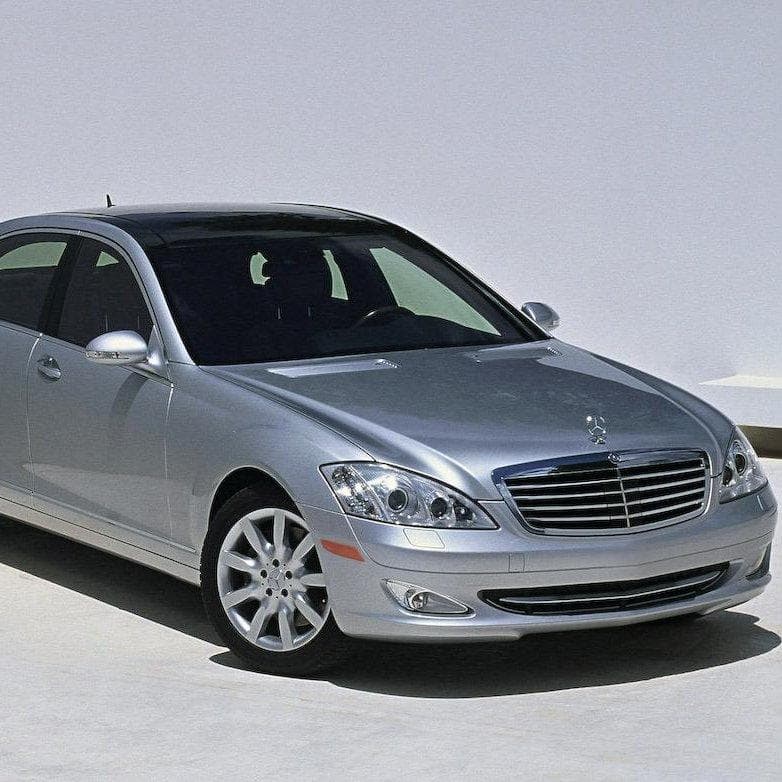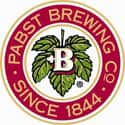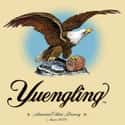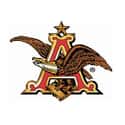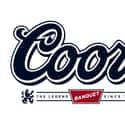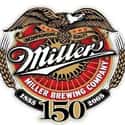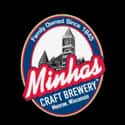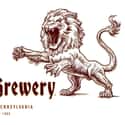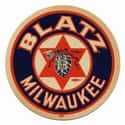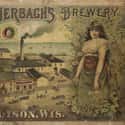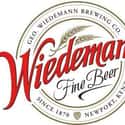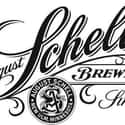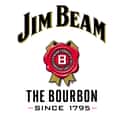-
(#1) Pabst Brewing Company
- Alcoholic beverage
To beat Prohibition, Wisconsin's Pabst Brewing Company struck the word "Brewing" from its name and started producing processed cheese spread called Pabst-ett. The brewery's ice cellars proved useful for aging the spread, which turned out to be highly popular in a state known for being a cheese powerhouse. The spread came in two types of packages – the basic round package, which kind of looked like a tobacco tin, and a two-pound economy loaf.
PBR's history page dryly observes that many customers likely enjoyed Pabst-ett with beer, which was just as plentiful as Prohibition law was unpopular. (That page also has a mouse pad-worthy illustration of the Pabst-ett cheese spread.)
In addition to cheese spread, Pabst Company made soft drinks and sold malt extract. Both of those products were widely manufactured and marketed by Prohibition-era breweries in an attempt to pull in extra cash. When the 21st Amendment repealed Prohibition in 1933, Pabst sold its cheese business to Kraft and went right back to brewing its famous Blue Ribbon beer.
-
(#2) Yuengling
- Alcoholic beverage
This little old Pottsville, PA, brewery, built in 1829, is the oldest operating brewery in the United States. It navigated Prohibition in part by switching to near-beer, with three offerings – the Yuengling Special, Yuengling Por-Tor, and Yuengling Juvo. But a more interesting navigational tactic was the decision to produce ice cream.
Yep, ice cream. The company opened the Yuengling Dairy right across the street from its brewery works, and started churning out dairy products, including Yuengling ice cream. Yuengling spun it off after Prohibition to renew its focus on beer, but Yuengling Dairy kept mooing until 1985. In 2014, the ice cream company came back into being.
When Prohibition was finally lifted, Yuengling released a celebration beer called Winner – and sent an entire truck of it to President FDR in thanks.
-
(#3) Anheuser-Busch InBev
- Brewing
Like Yuengling, Anheuser-Busch (now Anheuser-Busch InBev) thought the ice-cream business was a cool option for surviving dry times. With its existing fleet of refrigerated beer trucks, Anheuser-Busch had no trouble keeping its new product from melting during transportation.
Anheuser-Busch also experimented with soft drinks and nonalcoholic malt beverages. Thanks to the smart people at the wheel, the company boasted more than 25 totally legal products in its Prohibition portfolio. These included a malt beverage called Bevo, which Anheuser-Busch actually released before Prohibition, in anticipation of the alcohol ban.
But what really delivered Anheuser-Busch was yeast. Quickly realizing people were breaking the law and brewing their own beer at home, the company started selling raw products necessary for such activity. "Yeast profits saved the company," said William Knoedelseder, author of Bitter Brew: The Rise and Fall of Anheuser-Busch and America's Kings of Beer, during an NPR interview. "That was the cash engine that was able to keep the company open."
-
(#4) Coors Brewing Company
- Malt Beverages
Adolph Coors, the founding father of the Adolph Coors Brewing and Manufacturing Company, was a savvy businessman who, like other Prohibition survivors, knew the value in diversification. From his earliest days in Golden, CO, Coors had his hands in a variety of business ventures and investments. His involvement with John Herold – who started the Herold Pottery and China Company, which specialized in art pottery and laboratory ceramics – would pay off in a big way for the Coors family.
Herold left Golden in 1915. Adolph Coors Jr. took over the pottery company as manager, and renamed it Coors Porcelain Company. As World War I raged, the demand for ceramic labware kept the Coors empire afloat during Prohibition.
Coors Porcelain kept going strong after repeal and the resurgence of Coors Brewing. It continued to kick out high-quality chemical labware, spark plugs, dinnerware, recyclable aluminum cans, insulators, golf clubs – a little bit of everything, basically. The company exists in the 21st century as CoorsTek.
-
(#5) Miller Brewing Company
- Alcoholic beverage
Miller is an interesting case study because although it played the usual Prohibition tricks of changing its name and rolling out a bunch of legal, nonalcoholic products, it still almost died.
In response to Prohibition, the company split itself into two branches – Miller Products Co. and Miller High Life Co. – and started pumping out the likes of Miller Special Brew, Verifine lemon soda, tonic, dry ginger ale, and Heart-o-Barley malt syrup. But by 1925 it was foundering, and nearly sank. The company was put up for sale at one point. Nobody bought it.
Smart investing by the company's law-abiding owners is the only reason it survived. Miller managed to scrape by on investment income from government securities, bonds, property management, mortgage loans, and real estate, and the rest is history.
-
(#6) Minhas Craft Brewery
The Minhas Brewery was established as the Monroe Brewery in Monroe, WI, in 1845, making it the oldest operating brewery in the Midwest and the second-oldest in the US after Yuengling. Adam Blumer Sr. changed its name to Blumer Brewing Co. in 1906, and Adam's son Fred took charge in 1918. Unfortunately for Fred, Prohibition took charge two years later.
To make ends meet, the company changed names again – this time to Blumer Products Company – and shifted its focus to everything from ice cream to Case tractors and road machinery. It also started brewing Blumer's Golden Glow Near Beer, which turned out to be quite popular. That brew's name was officially changed to Blumer’s Golden Glow Real Beer upon repeal.
-
(#7) Lion Brewery, Inc.
- Alcoholic beverage
Many Prohibition-era breweries and distilleries took advantage of the dye famine created by World War I and transformed themselves into dye manufacturers to stay alive. This might not make much sense at first, but it was actually a pretty logical decision because the infrastructure and equipment involved in producing alcohol, both beer and liquor, are very similar to that required for dye production.
One brewery to make such a transformation was the Lion Brewery in New York. After completing the appropriate modifications to its brewery works – and reversing the word "Lion" in its name – the company returned to business as the Noil Chemical and Color Works, and started crafting a wide variety of dyes.
After Prohibition, Noil moved the dye-manufacturing operations to a new location, and the Lion Brewery roared back into beer-brewing business.
-
(#8) Valentin Blatz Brewing Company
Like other enterprising breweries, Valentin Blatz avoided bankruptcy by simply selling the stuff needed to illegally make beer at home. Specifically, it sold hopped malt extract, to which only yeast and water had to be added to get beer. Anheuser-Busch was already selling yeast, and water came out of the tap, so home brewing during Prohibition wasn't all that hard. Of course, malt extract like that sold by Valentin Blatz wasn't advertised as a home brewing ingredient – rather, it was sold as a health tonic and baking ingredient.
The Metropolitan News-Enterprise ran a 2005 column about malt extract sales during Prohibition, and quoted a few sources of interest. For example, according to a 1929 news article from Lima, OH, the label on one of these malt extract cans read: "For bread making use one half as many tablespoonsful of malt extract as formerly used of sugar. This will make the bread light and perfectly browned."
The article also noted that "enough malt extract is sold each week in Lima to provide the necessary sweetening for 800,000 loaves of bread, or more than 16 loaves for every man, woman, and child."
Clearly, home brewing was happening in Lima, and it's not ridiculous to say it was happening everywhere else in the US, too.
-
(#9) Fauerbach Brewery
Fauerbach Brewery was the first brewery to pop up in Madison, WI. It was founded by the Sprecher family in 1848, and renamed by Peter Fauerbach 20 years later. By the time Prohibition was over, it was the only brewery still operating in Madison. It had stayed alive, and also legal, by switching production to malt beverages, soda, and – like its Wisconsin brothers over at Pabst – cheese.
The Fauerbachs had a history of being smart, hardworking folks, and this ultimately meant they had quite a few additional sources of income during Prohibition. While the rest of the Madison brewing scene collapsed, the Fauerbachs lived on the income from two hotels, a couple of Pepsi-Cola franchises, and properties they liquidated. Basically, Fauerbach Brewery survived Prohibition because its owners spread themselves like Pabst-ett across multiple business ventures.
-
(#10) Wiedemann Brewery
The Wiedemann Brewery in Newport, KY, preferred to do things the illegal way. Like many other breweries across the country, it ignored the law and kept right on brewing (bootleg) beer.
So it's not too surprising that the Wiedemann brewhouse was raided in 1927 by federal agents, who found 3,500 barrels of beer waiting to be shipped. The feds also found the brewery's records, which indicated that Wiedemann's Prohibition production was about 50,000 barrels a year.
The government seized the brewery and the IRS slapped it with a tax-evasion charge. But the case against Wiedemann Brewery took a big hit when the feds involved in the bust turned out to be corrupt. The brewery was later returned to Wiedemann (for a price, of course), and, after Prohibition, went back into production for another 50 years. It was one of only six post-Prohibition breweries to revive its operations in the Cincinnati area.
-
(#11) August Schell Brewing Company
Schell's Brewery was a wily one. Upstairs, it stayed legal, with offerings that included near-beer, soft drinks, and candy. Downstairs was a different story, one of a basement for the owners "to keep their sanity" (get hammered), according to Schell's history page.
Schell's actually got busted for brewing near-beer that was too high in alcohol content. Schell's said it was an accident – the offending near beer had simply been forgotten and fermented too long, the company claimed.
The authorities let Schell's off the hook. Good thing they didn't check the basement, right?
-
(#12) Jim Beam
A lot of distilleries, like Jim Beam, were able to stay afloat during Prohibition due to a nice little loophole in Prohibition law: medicinal liquor. That's right, for three bucks, one could legally buy a prescription for medical liquor that allowed for a pint of booze every 10 days. It's no surprise such prescriptions spiked from 1920 to 1933. History.com has a humorous example of doctor's orders that make it clear everyone knew what was going on: "Take three ounces every hour for stimulant until stimulated." Sure thing, doc!
Jim Beam paused its US distilling operations during Prohibition. But the Beam family definitely didn't stop making bourbon. They just changed where they made it. One of the Beams moved to Canada and worked a distillery there until Prohibition ended, at which point he immediately returned to Kentucky. Another Beam packed up his family and went to Mexico.
That's certainly one way to get around an entire country's laws – just leave it.
New Random Displays Display All By Ranking
About This Tool
The American Prohibition came into effect on January 17, 1920. According to this law, it is illegal to manufacture, sell or even transport beverages with an alcohol content of more than 0.5%. Prohibition had a significant impact on the American wine industry. After Prohibition ended, only about half of the pre-existing brewing companies reopened for business, and many small companies closed permanently.
Because only a few large brewing companies survived during Prohibition, American beer was criticized for lacking individuality and they are only daily necessities. The random tool lists 12 famous brewing companies that still open during Prohibition.
Our data comes from Ranker, If you want to participate in the ranking of items displayed on this page, please click here.

